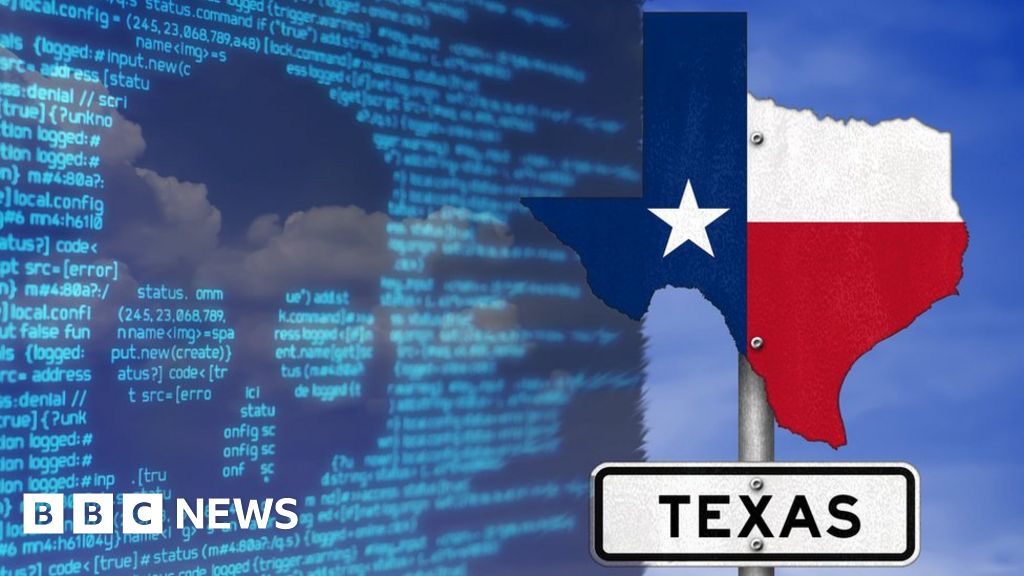Texas Government Organisations Hit By Ransomware Attack

 Image copyright
Getty Images
Image copyright
Getty Images
Hackers have infected 23 organisations connected to local government in the US state of Texas with ransomware.
Officials indicated the attack over the weekend was co-ordinated.
The Texas Department of Information said the attack had primarily affected smaller local government departments.
A spokesman said the situation was still ongoing on Monday morning.
Texan authorities have drafted in cyber-security experts, as well as the military and counter-terrorism units, to help bring systems back online.
In a statement, the Texas Department of Information Resources said evidence suggested the attacks "came from one single threat actor".
Officials did not release specific details of the affected departments or say whether the cyber-criminals had specified a ransom amount.
Ransomware is a type of malicious software that cyber-criminals use to disable a computer and its data until a ransom is paid.
Hackers have targeted a number of US states this year, paralysing government computers in New York, Maryland and Florida.
In May, hackers seized control of thousands of government computers in Baltimore.
The attack disabled email accounts and prevented online payments to city departments for weeks.

Media playback is unsupported on your device
How have cities dealt with ransomware attacks?
Officials in Baltimore refused to pay the ransom, opting instead to manually process thousands of transactions, including home sales.
They also slowly restored access to around 10,000 employee email accounts.
The city estimated losses of around $18m (£15m) from the attack.
The hackers originally demanded $100,000 worth of Bitcoin.
Other cities have chosen to pay.
In June, council leaders in Riviera Beach, Florida, voted to pay almost $600,000 in the digital currency Bitcoin to hackers who paralysed the city's computer systems for weeks.
A week later, officials in Lake City, Florida paid hackers $500,000 following a similar ransomware demand.
Lisa Forte, a partner at Red Goat Cyber Security, which specialises in cyber-security testing, said ransom payments left cities vulnerable to more attacks.
She said: "Even if you do recover your data, your organisation will likely be added to a list on the dark web of 'organisations that pay ransoms'. This may lead to you being targeted again."
Are cities becoming easy targets?
Ransomware attacks are on the increase.
Liron Barak, chief executive of cyber-security firm BitDam, said the complex structure of government departments often made them an easy target for hackers.
She said: "In addition, local governments tend to communicate with a wide variety of businesses and individuals, with many of them being one-time contacts.
"This makes them more vulnerable to attacks, as their employees don't know most of the contacts with whom they communicate, in person."
From Chip War To Cloud War: The Next Frontier In Global Tech Competition
The global chip war, characterized by intense competition among nations and corporations for supremacy in semiconductor ... Read more
The High Stakes Of Tech Regulation: Security Risks And Market Dynamics
The influence of tech giants in the global economy continues to grow, raising crucial questions about how to balance sec... Read more
The Tyranny Of Instagram Interiors: Why It's Time To Break Free From Algorithm-Driven Aesthetics
Instagram has become a dominant force in shaping interior design trends, offering a seemingly endless stream of inspirat... Read more
The Data Crunch In AI: Strategies For Sustainability
Exploring solutions to the imminent exhaustion of internet data for AI training.As the artificial intelligence (AI) indu... Read more
Google Abandons Four-Year Effort To Remove Cookies From Chrome Browser
After four years of dedicated effort, Google has decided to abandon its plan to remove third-party cookies from its Chro... Read more
LinkedIn Embraces AI And Gamification To Drive User Engagement And Revenue
In an effort to tackle slowing revenue growth and enhance user engagement, LinkedIn is turning to artificial intelligenc... Read more

